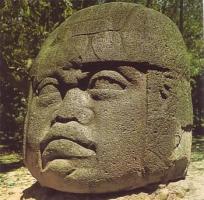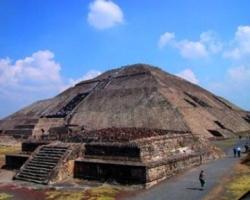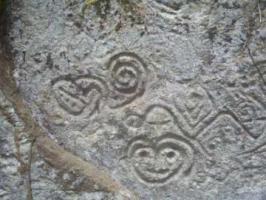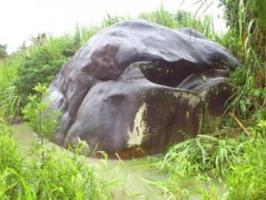Copy Link
Add to Bookmark
Report
New World Reader Volume 1 Issue 1

The New World Reader
An Electronic Idealetter
November 1994
Vol. 1 * No. 1
Contents-
What is The NWR?
>From the Editor: The End of the World
Communications
Extreme Reductionism: Theories of Everything
Looking Back
Scientific Currents
Books
___________
What is NWR?
The idea for The New World Reader (NWR) was conceived exactly two years ago
in November 1992 just after the presidential elections. I saw a need for a
publication which considered not the current political issues, but current
political ideas and how these ideas affect our lives. The theme of
"change" in the last election caught my imagination and I began to think
about what this word really meant. What sort of change was Bill Clinton
talking about? What sort of change would take place? I thought NWR should
track this change and act as an impartial gauge to measure the success or
failure of "change." This idea was doomed to failure. Even with the
resources of the Internet at my finger tips, I could not possibly keep up
with the workings of government and society on my own. After the attempted
composition of two issues, I decided I had taken on too great a task.
The idea of change stuck with me though and has lead me to recast the
intent or goal of NWR. Change is the coming or realization of the future.
That which is now becomes what is to yet to be. This is change. The
twentieth century is replete with change. Many biographies of prominent
figures in this century give accounts of how these figures were born before
automobiles, airplanes, indoor plumbing, etc. and witnessed the emergence
of atomic energy, men on the moon, and e-mail. This century will be known
for the changes that have taken place in the way people live.
NWR will still track change, but not just the change promised by Bill
Clinton. I propose to look to the future to anticipate the changes that
will take place. This will require some looking back, some examination of
the present human condition, and some tentative predictions. In some ways,
I will be continuing in the spirit of Alvin Toffler's program which he
presented in his book "Future Shock." In order to be prepared for what is
coming, we must have some knowledge of it. Since we cannot have certain
knowledge of the future we must settle for speculation.
Why is it important to anticipate change? Beyond avoiding the shock of
future, by envisioning what will come we have more control over the future.
By planning for the future we are able to determine it so that it reaches
us in a form we recognize. To avoid looking forward is to blindly accept
whatever development comes. We cannot afford to take such a relaxed
position in a time when future developments could literally mean the fate
of the world and the survival of civilization.
Enough prologue. NWR should speak for itself.
__________
>From the Editor: The End of the Century, the Millennium, and the World
First, a confusion needs clearing up. The end of the century and the
millennium is not December 31, 1999; the last day is December 31, 2000. I
will prove this with a simple argument: the present century is called the
twentieth century; to deprive the twentieth century of the year (2000) that
gives it its name is absurd. The climax of the twentieth century is
reached when 20 times 100 years is complete. Don't even think of
celebrating the end of the century at the end of 1999, unless you wish to
celebrate the coming of 2000 the final year of the twentieth century.
When a time period comes to an end, it inspires all sorts of things, not
just confusion about when that end actually occurs. The confusion over the
last day of the twentieth century mirrors another confusion: the defining
characteristic of the generation that is presently coming into their
maturity, the so called Generation X. The X tells us that no one has a
clue what this generation is all about. That ethnic groups are trying to
define themselves with labels in the form of X-Americans (fill in anything
you want for the X) shows that people are searching for something with
which to identify. We have experienced an explosion of diversity so
complex that the underlying unity is buried under the social rubble. The
great melting pot is in the throws of a psychological metldown. The
meanings of words are changing. Bad is good and good, bad. What was once
positive creative alienation has become alienation from the self. The
fragmentation that enabled us to conduct productive lives now threatens to
dissolve the ties which bind together the family just as it has brought an
end to community. The end of society is rapidly approaching.
In light of this, it is no surprise that most people secretly desire the
end of the world. Those who are defeated look to the future and find it
bleak. Because they are defeated they lack the power to do anything about
the future; mass suicide seems to be the only answer.
A successful campaign has been waged against the dignity of humanity. We
have suffered many losses: a loss of meaning, of commitment, of hope. Even
though, a solution is possible. A positive worldview can be resurrected
from the ashes of this self inflicted degradation. Indeed, viewing the
world and humanity in a positive way is necessary for our preservation.
NWR is committed to the preservation of humanity. This commitment
encourages us to illuminate meaning in our lives and combat all forms of
reductionism. We have hope that our future will be bright, but realize
that much needs to be done to prepare modern people for present and the
future world.
Trevor Austin, Editor of NWR
__________
Communications
[Send in your comments. They will be included in this section.]
__________
Extreme Reductionism: Theories of Everything
by Donavan Hall
"The theologians think they know the questions but cannot understand the
answers. They physicists think they know the answers but don't know the
questions." JOHN BARROW
Sometimes when we look around, open to the magnificence of world around us,
a quiet voice inside of us asks: where did it all come from? Why is
everything here? What possible answer can we give to such a question?
Most of us just shrug in the certainty that the world is here, an
inescapable fact, and we go on with our lives. Others who think more
deeply, try to give an explanation. Some theologians contend that a being
created the universe and established the natural laws; this being made
everything out of nothing. Some scientists say that at some finite time in
the past the physical configuration of the universe was such as to make the
idea of time an absurdity and out of this incomprehensible initial state
everything we know today came to be. On the surface there is not much
difference between the two views: both invoke unknowable initial
conditions. The development of the cosmos after the point of coming into
being is where science diverges from theology.
In their zeal to explain why everything is here, scientists have begun
asking questions about the very first seconds of creation. They are trying
to understand the physical laws that applied to conditions of the embryonic
universe. If a Theory of Everything (TOE) can be found which explains how
the present universe came about from that initial state , then hasn't some
explanation of why we are here been given? Some scientists, such a Stephen
Hawking, say yes. These scientists are only deluding themselves. Science
lacks the method of inquiry required to answer "why" questions. Explaining
that the initial state of the universe was this or that tells us nothing
about why it was in this or that initial state.
Let us take one step back. We asked if a TOE could be found? This is a
big question by itself. We should first consider whether such a theory is
possible.
Does a TOE exist? The answer to this question lies in science's ability to
formulate the theory and then test it experiementally. The Superconducting
Super Collider (SSC) was intended to be the next step in our search for the
Grand Unified Theory (GUT), the precursor to a TOE. The GUT would explain
electromagnetism and the weak and strong forces simultaneously. A TOE
would add gravity to the list of forces, thus explaining all the forces of
nature in a single theory. The demise of the SSC has not stopped the
flow of theoretical speculations about GUT's and TOE's in the scientific
journals. These theorists are pushing the scientific envelop in that they
are journeying far down the speculative road without the company of
experiment to check their way. Experimental verification of these theories
would require the construction of larger and larger colliders (even larger
than the SSC), a task that present technology and the world economy cannot
possible support. Without experiment, then we must find another way to
test whether the theorists are describing reality are just playing a very
elaborate mathematical game.
When inquiring about the possibility of explaining everything, we need to
have some idea of what we mean by the word "everything." Do we mean all
physical phenomena or every event, action, or process in the universe?
Science is clearly confined to addressing questions pertaining to the
physical realm of existence, but for some (materialists) the physical realm
is the only realm. Hawking would be very inclusive about what "everything"
means--everything that is real is physical. Many scientists adhere to the
position of materialism which denies the reality of that which is not
material. This might seem rational, but then ask yourself of what material
a thought or a feeling is made. Contending that thought is immaterial is
not a convincing answer for some, and thus the deeper problems related to
the nature of human consciousness must be explored. That can be done
elsewhere. Let us continue. But for our present discussion, let us assume
"everything" refers to material and physical processes.
Nobel laureate Steven Weinberg gave a lecture a few years ago at Southern
Methodist University in which he told those of us in the audience that it
would not be long before physicists worked out the details of the GUT. He
described physics as a process of pealing layers off an onion of knowledge.
Each generation works to probe nature at smaller and smaller length
scales. He said it was inconceivable that this onion had an infinite
number of layers. At the center of the scientific onion is the TOE.
Weinberg's faith and optimism that the TOE will be found is commendable,
but his analogy betrays the true complexity of the task before science. If
science is suited for pealing off layers from knowledge onion, then how is
it to recognize the center when it gets to it? Might not science go on
pealing until nothing is left of the onion?
As an investigative discipline science explains things in terms of
components or "fundamental" parts. Disassembly of the fundamental object
is outside the purview of science; the fundamental object cannot be taken
apart or explained by simpler principles than itself. Perhaps philosophers
would call this fundamental principle Being. Clearly, we are getting into
waters where science is unequipped to swim.
Through the process of reduction, scientists proceed to describe how the
universe is put together. Beginning with any macroscopic object, it can be
reduced to "fundamental" constituents. My desk is made of wood. Wood is a
collection of molecules; molecules, a collection of atoms; atoms, a
collection neutrons, protons, and electrons. Neutrons and protons are made
of quarks. Electrons and quarks seem not to be made up of anything; they
have no internal structure. When internal structure is not discernible this
line of reasoning terminates. To leave our description of matter at this
stage does not satisfy the truly curious. How do we explain what a quark
or an electron is without reducing it to something more fundamental than
itself? Scientists can give an accurate account of the physical properties
of quarks and electrons, but they can never say what these particles are
without ultimately stepping outside science and into philosophy.
Theory has advanced beyond the experimenter's ability to check it. This is
a precarious position for a science to be in. Because of this, particle
physicists are becoming concerned about the future of their field. The
particle theorists working on GUT's and TOE's engage in a highly
mathematized philosophy. When theory gets too far beyond experiment it is
no longer science. Science is investigative, grounded in experiment.
Without experiment the development of thses theories must be considered a
non-investigative pursuit. They may conform beautifully to the
presuppositions that scientists have concerning what a GUT or a TOE should
look like, but they are nonetheless only well founded speculations not
certain knowledge of objectively existing objects. The lines dividing
philosophy and science have blurred in the search for GUT's and TOE's,
because it is here that the true character of scientific knowledge, that of
well founded opinion, is revealed.
Does it matter whether a TOE is out there to be found? Not really.
Searching for the ultimate or final theory has made us better scientists
and better humans. The benefit of the quest for the TOE is not the finding
but in the searching. Aristotle would likely agree as he says in the
Nicomachean Ethics that the highest pursuit is that which has an end in
itself.
__________
Looking Back
[This section is for an article on how things were in the past. Part of
looking forward to the future is knowing what has taken place and where
those past events have lead us. We can learn much about the future from a
consideration of history.]
__________
Scientific Currents
[This section is for items of current scientific interest. Send in
announcements of those cutting edge discoveries.]
__________
Books
[This section is for book reviews. Please include publisher and ISBN when
submitting reviews.]
__________
NWR Information
Subscriptions to NWR are free via e-mail. Send a note to NEWORLDR@AOL.COM
requesting to be put on the mailing list.
Contributions should be sent electronically to NEWORLDR@AOL.COM.
Essays should be 1000 words or less; book reviews 500.
copyright, 1994 NWR























